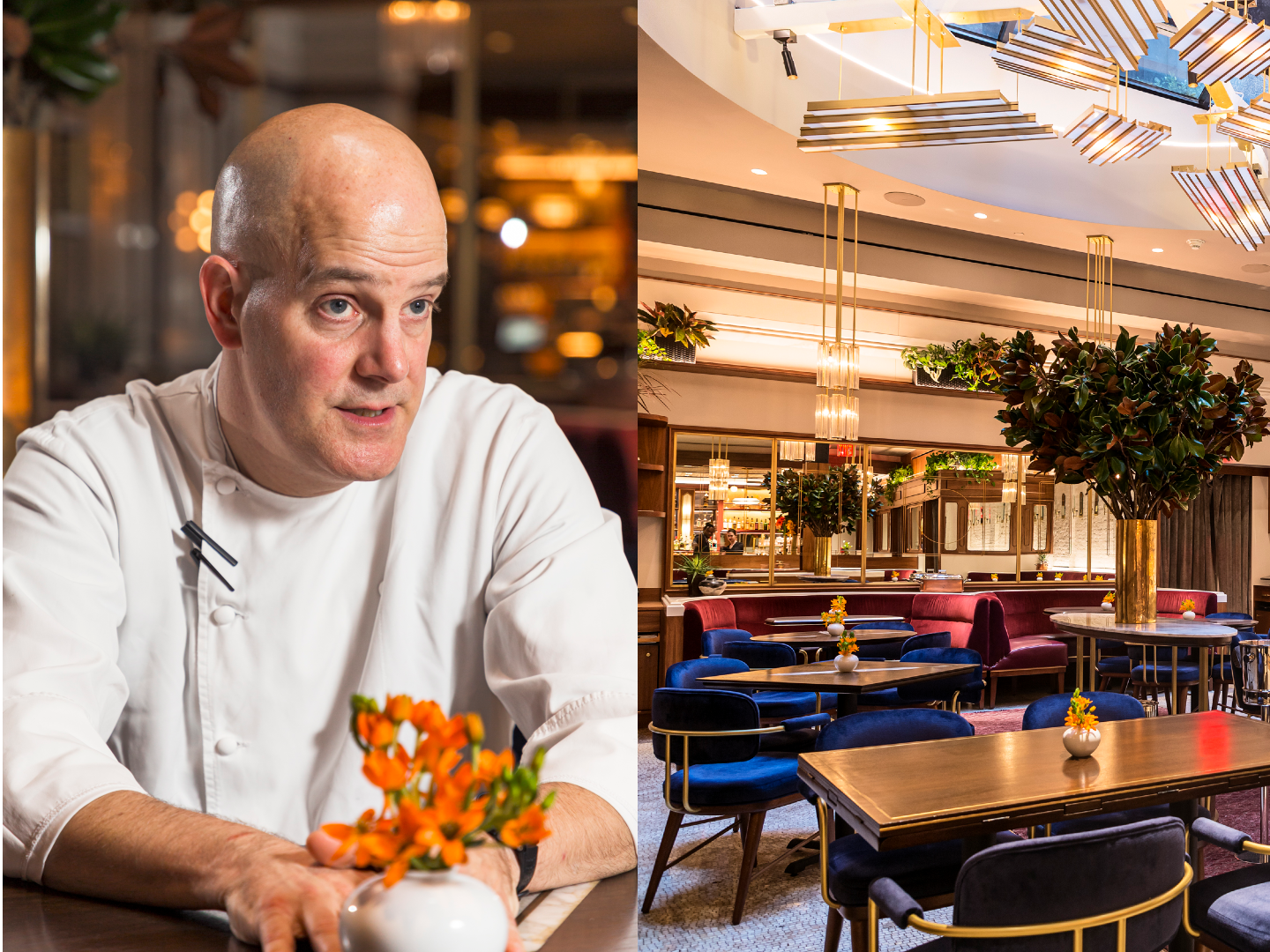- Though fine dining can be an intimidating phrase, many high-end restaurants are shifting away from the old, white-tablecloth model.
- Benno, the restaurant tucked away in the back of the Evelyn Hotel in Manhattan, received a Michelin star in the 2020 guide after being open for less than a year.
- The New York City restaurant centers itself around approachability and inclusion.
- Insider sat down with chef Jonathan Benno, wine director Aaron Von Rock, and general manager Andrea Verardo to talk about fine dining, the philosophy at Benno, and all things Michelin.
- Visit Insider’s homepage for more stories.
If you want an inside look at fine dining, look no further than Benno, the restaurant tucked away in the back of the Evelyn Hotel in Manhattan – the star-studded team is a veritable encyclopedia of restaurant knowledge.
Jonathan Benno is a graduate of the Culinary Institute of America and has worked in kitchens run by top-name chefs including Thomas Keller, Daniel Boulud, and Tom Colicchio. He also served as chef de cuisine at Per Se, which was awarded three Michelin stars under his watch, and executive chef at Lincoln Ristorante, which was awarded one star.
Aaron Von Rock, the wine director, and Andrea Verardo, the general manager, also have illustrious, Michelin-starred careers at a slew of fine-dining establishments around the world.
Insider sat down with the trio before service in the elegant dining room of Benno’s eponymous restaurant to talk misconceptions surrounding fine dining, the philosophy at Benno, and all things Michelin.
Chef Jonathan Benno told Insider that while all of the Michelin stars he has received over the course of his career are special, the star that his eponymous restaurant, Benno, was awarded in the 2020 guide was a particularly memorable accomplishment.
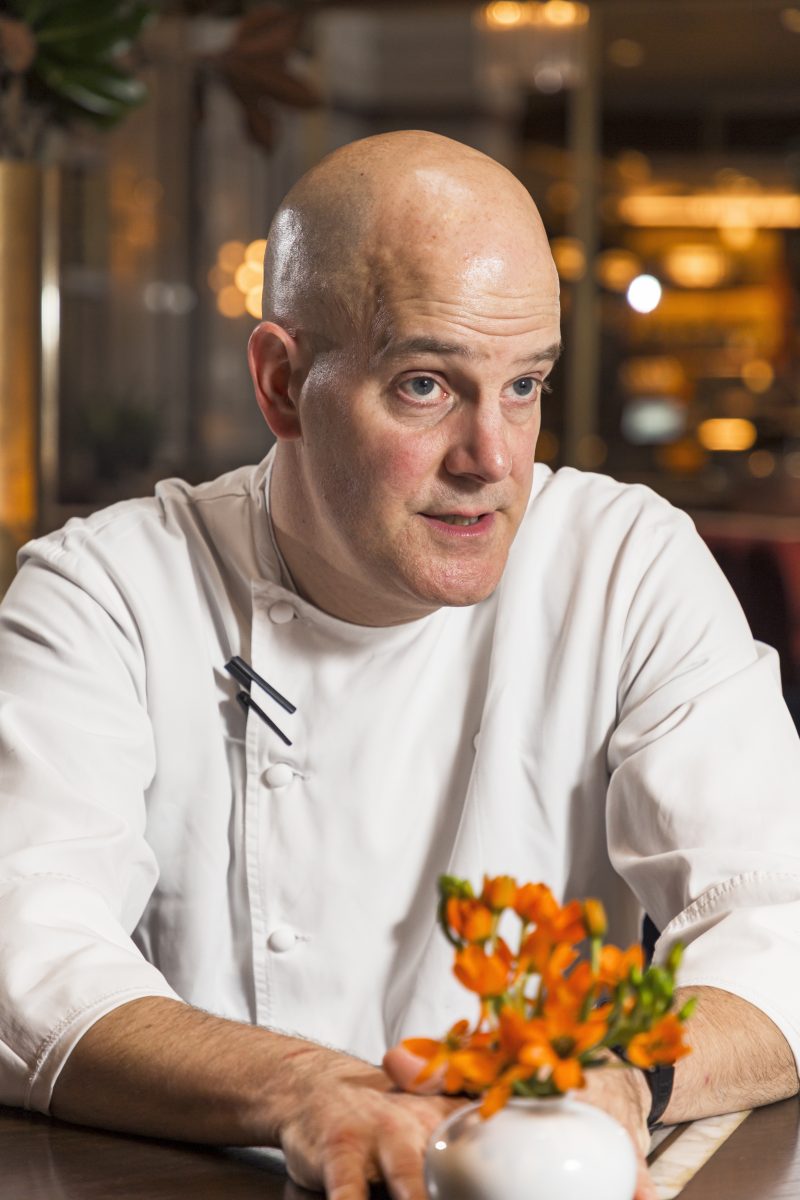
But while the Michelin-starred restaurant - which is tucked in the back of the first floor of the Evelyn Hotel in Manhattan - is named after him, Benno said he couldn't have done it without his team.
"We have an incredible team here, I have partners here, and I'm certainly not going to say that I did it on my own," he explained.
Benno said that overall, he's pleased with the way his menu has evolved over the last year, noting that the shift from a prix fixe menu to a la carte was done in the name of accessibility.
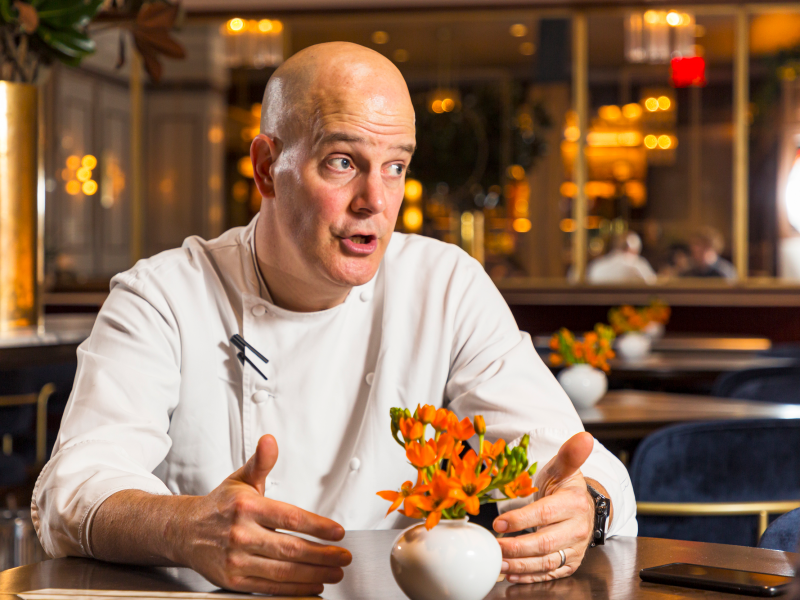
"A big part of our evolution is that we opened with a prix fixe format," he explained. "It was three-course, four-course, five-course, but the guest chooses the menu. Based on guest feedback, based on the perception of being a tasting menu restaurant, a special occasion restaurant, we made the decision several months ago to go with an a la carte format in the dining room."
Of the many dishes on his menu, Benno said he wished more customers would give tripe, or stomach lining, a shot.
"I wish people would give tripe a chance," he said, chuckling. "Tripe kind of comes on and off our menu. It never really seems to sell very well, and I accept it."
Benno told Insider that a common misconception about fine dining among young people is that service can be prim and proper — and not fun.
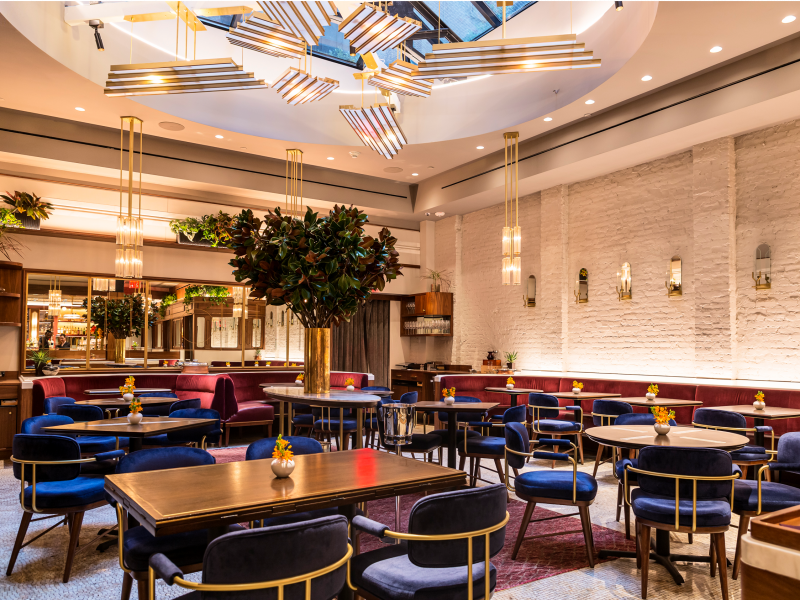
He explained that people who eat at fine-dining establishments more often - usually older customers who have the resources to do so - realize that eating at restaurants like Benno can be a blast.
Of the Michelin star, Benno is grateful but knows he and his team can't rest on their laurels.
"We just got the Michelin star, which has really helped with awareness and bringing people through the front door," he explained. "Then it's up to us to deliver an experience that isn't just going to say 'Wow,' it's also going to stick in someone's memory so they come back with their significant other, a business colleague, a private event."
In his review of the restaurant earlier this year, Pete Wells of The New York Times said, "Benno is not trying to be contemporary. It's trying to be delicious. And it is, from start to finish, almost without exception."
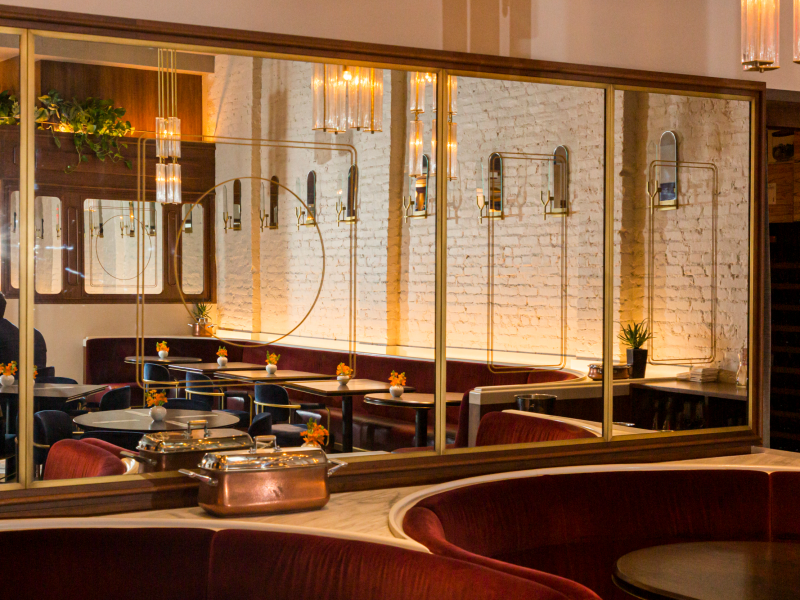
When asked about this characterization, Benno told Insider that while the menu at his restaurant is unique and interpretive, it's ultimately rooted in tradition.
"Yes, it's interpretive. Yes, we try to make it our own. But we also try to stay true to the vision of classic French and Italian cuisine," he said. "A significant part of our business and menu at Benno is pasta. Some of them are unique, but we really try to stay true to the vision of being classic French and Italian cuisine."
Though chef Benno is one of the most accomplished chefs in America, his preferred after-shift meal and cocktail are surprisingly relatable.
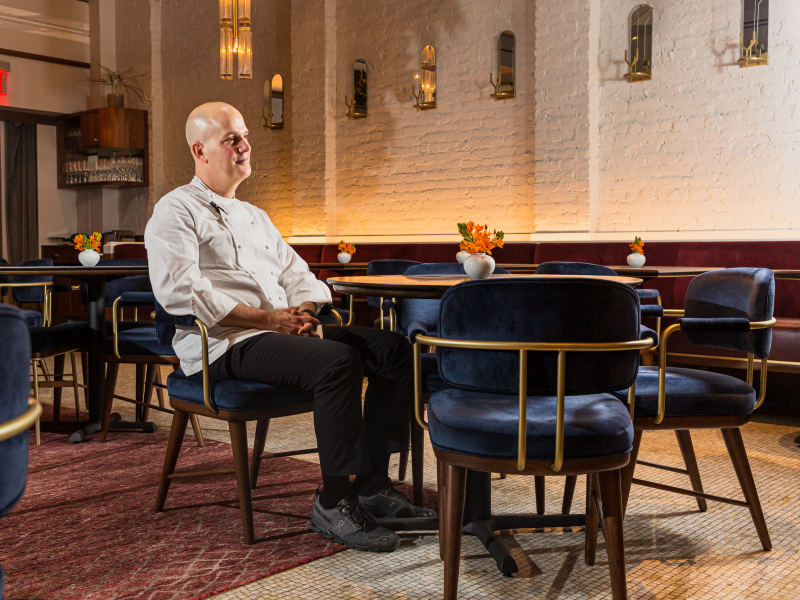
"As I've gotten older, I've had to watch what I eat and drink at midnight, but I'm a shot and a beer guy," the chef said, chuckling. "It's a Miller High Life and a Maker's Mark on the rocks."
His favorite off-shift meals are also familiar and easygoing.
"It used to be the bistro burger at Corner Bistro or the falafel at Mamoun's," he told Insider. "Those were two classic late-night spots. Now, we eat much earlier. A bowl of ramen at Ivan Ramen - much earlier in the day on my day off - is probably a more consistent experience than Mamoun's or Corner Bistro at two o'clock in the morning."
Wine director Aaron Von Rock told Insider that he and his sommelier, Nick Walton, taste around 13,000 wines each year, and that the first thing he thinks about when making a wine recommendation is the season.
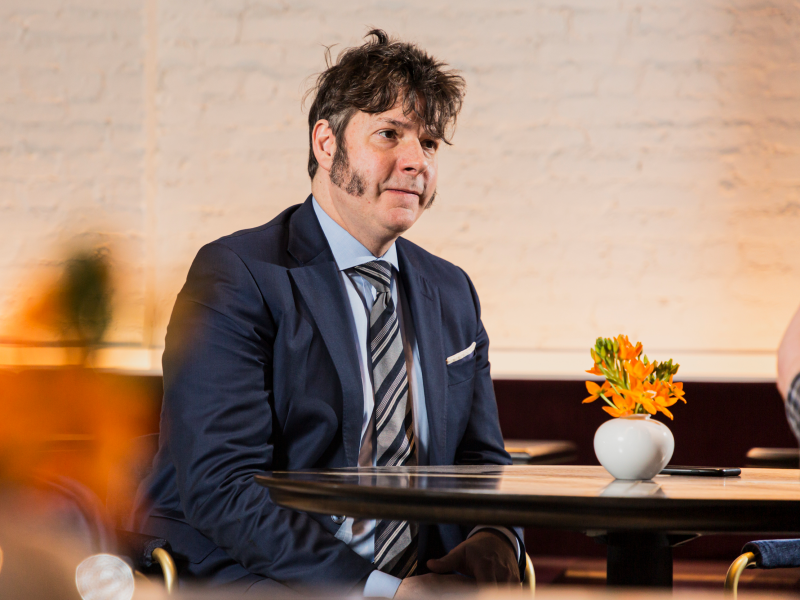
At Benno, the Mediterranean-forward wine list - which is comprised of bottles from areas including Italy, Spain, Southern France, Greece, and Lebanon - comes in at around 450 bottles.
During the fall, he said, when truffles are available, he likes to lean into Nebbiolos, Benno's Brunello library, mature Burgundies, and older California Cabernets.
What might surprise some New Yorkers, though, is how local ingredients factor into Von Rock's beverage program, and how much of a wine director's day is spent searching for new and exciting cocktail ingredients.
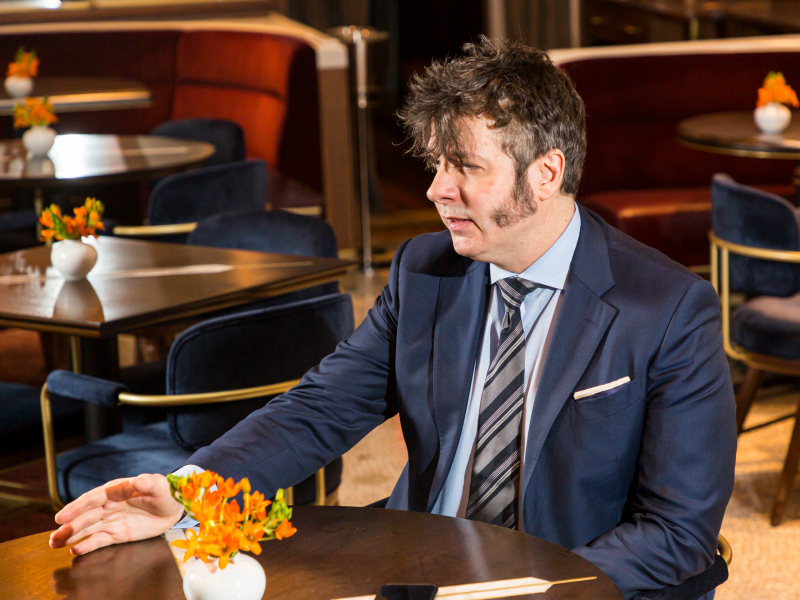
"Right around us there are 25 different wine importers and distributors, so we get to visit with them frequently, and we go to the farmer's market to get ingredient ideas," he explained.
"Cocktail Kingdom is a few blocks away and that's a place to get equipment and new ideas for glassware. All of this is about walking around and shopping - that's a lot of my day-to-day, too. I'm shopping with a lot of our guests in mind, particular people, and groups as well."
Von Rock said that if you're feeling intimidated by a large wine list, especially if it's in book form, take a peek at the beginning of the list to see what the restaurant does well.
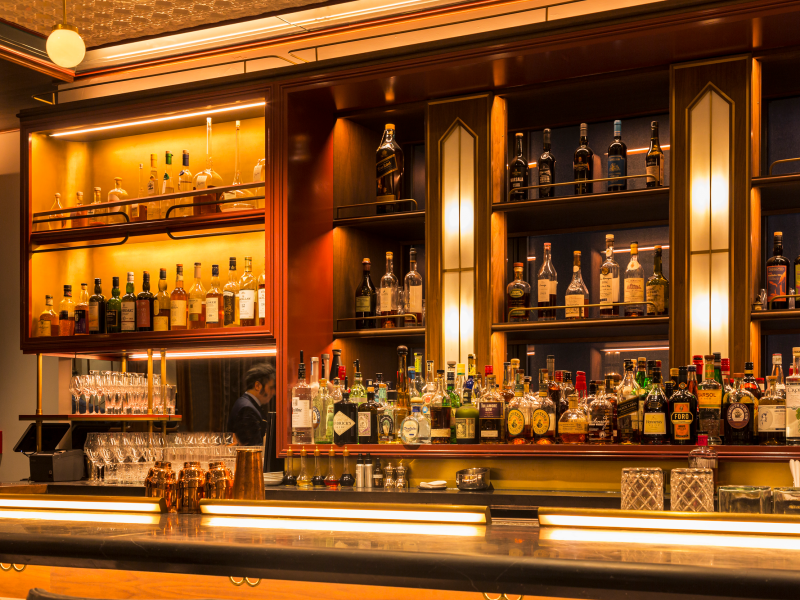
"Look at the beginning of the list and you can get a good idea of the intention of the restaurant," he explained. "Right away you'll get a snapshot of what they do well. That's the best way to get comfortable with the wine list in general."
He also noted that accessibility is a large part of his wine program.
"We wanted to have a lot of wines in a price range that people could feel like they could participate with," Von Rock told Insider. "Then you're making sure that the quality of those is at the very highest level. That's why we taste so much."
Lately, when he's not tasting wines for work, Von Rock has been drinking Austrian wines.
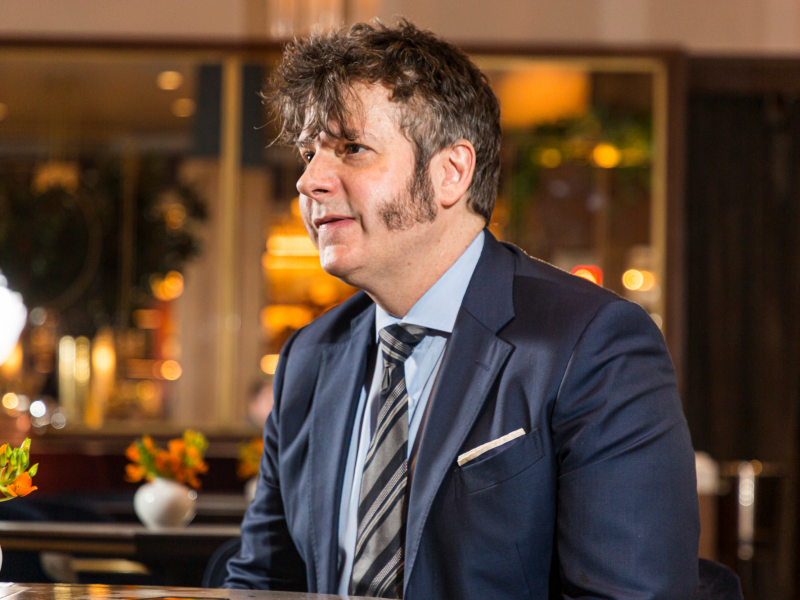
"I look out for some Grüner Veltliner," he said. "I just enjoy the way that seasons food."
He also told Insider to keep an eye out for new and exciting American wines coming from a state that's not known for its winemaking excellence - Idaho.
"Watch what happens in Idaho," he said. "I think it gets overlooked. A lot of the winemaking talent in Washington state knows they can find cooler climate over that border, so we're getting a lot of fun things out of Idaho."
General manager Andrea Verardo, an alum of fine-dining restaurants all over the world, said that the Michelin star at Benno was a huge accomplishment — especially in New York.
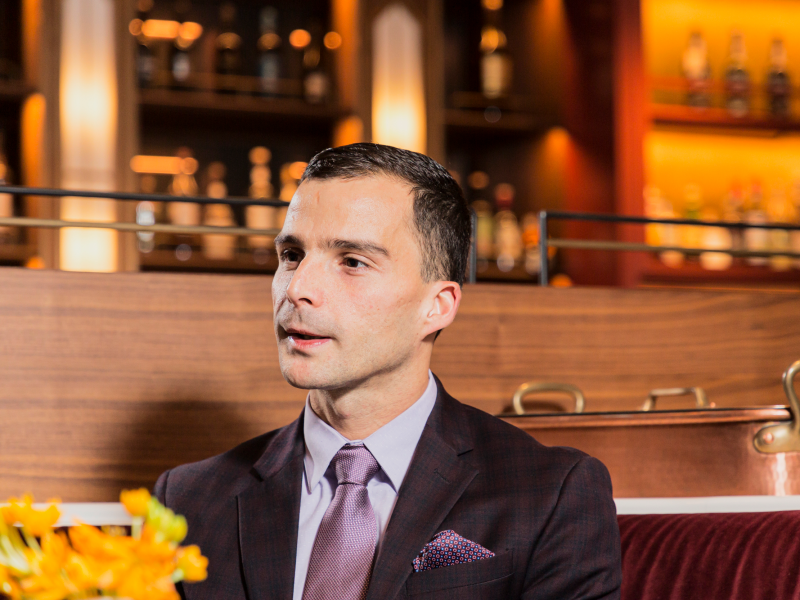
"The Michelin guide is very important for us because it really sets a standard for your guests when they eat here. It kind of recognizes what we have done in the past, what we've learned, and how we've used that to achieve."
Verardo said a big part of that has to do with the high level of service at Benno - one that puts its customer's needs, no matter how knowledgeable they are, first.
"Speaking down to people is not a good way to do it," he said. "We're here, and we might have more knowledge than the diners have, so it's our duty to share that knowledge with the guests."
Verardo explained how accessibility is a huge part of the service at Benno, and how it's the people behind the service that make the experience worthwhile.
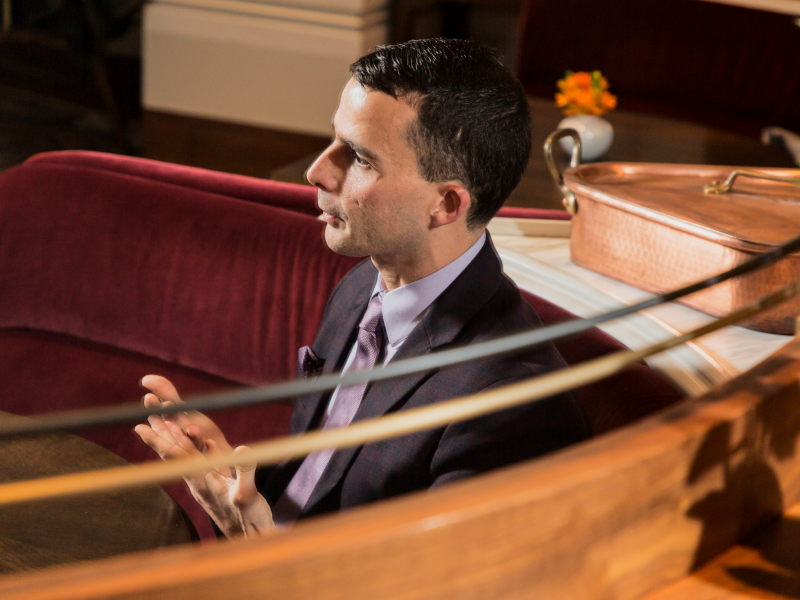
"I don't want to compare ourselves to other restaurants," he said. "But if you go to Eleven Madison Park, Per Se, Le Bernardin - all places with beautiful dining rooms, beautiful china, glassware, extremely well-executed food - people come back to these places because of the people that are behind the excellent service. When you go to these places, you go because of the servers, the general managers, the beverage director. That's the most important part of service."
Verardo also explained that terms such as "fine dining" and "upscale" are hard to define. He said that oftentimes, fine dining is just used to describe places that have tablecloths.
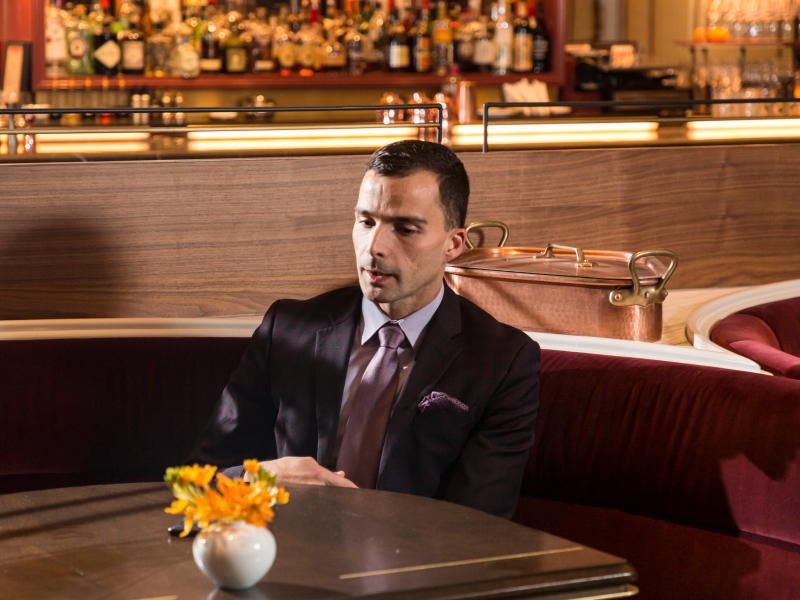
"We don't want to have tablecloths because we want to be approachable. If I walked into a restaurant with a white tablecloth, I might say OK, that's an upscale restaurant. And 'upscale,' again, can be misleading. What is upscale? Is that just expensive? Is that a great restaurant or is it just pretentious?"
Verardo also explained that Benno aims to dispel the myth that fine-dining restaurants are only for the prim and proper.
"People should feel really comfortable when they come here," he said. "That starts when we answer the phone, when we greet them, and when we pull the chair for them."
